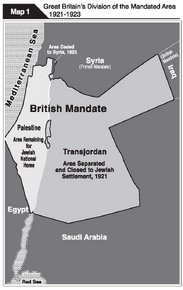I'm going to refocus our discussion back on the original points because you keep trying to broaden it to bypass the issues at hand.
"All Members shall refrain in their international relations from the threat or use of force against the territorial integrity or political independence of any state, or in any other manner inconsistent with the Purposes of the United Nations. "
Nothing in there about being allowed to punish aggression by annexation of the aggressor's territory. You simply don't get to take another state's territory. Essentially under any circumstances. The only exceptions are the right of self determination which runs directly counter to this, and without the use of force. In other words, if a state agrees to let a territory secede, or be annexed by another state.
*Sorry "evacuating"... "displacing"... which euphemism are we using for this now?
Israel signed the UN Charter. Israel is obligated to abide by it. Article 2;That's what happens when responding to the TLDR portion and not the full text. The UN is not a single body, and different agencies have diffeIt rent authority. WHO cannot comment on LOAC in matters not relevant to health, nor can UNHRC comment on LOAC/IHL (at all). And the single entity capable of passing judgment is the ICJ, whereas the ICC is its advisory counterpart.
"All Members shall refrain in their international relations from the threat or use of force against the territorial integrity or political independence of any state, or in any other manner inconsistent with the Purposes of the United Nations. "
Nothing in there about being allowed to punish aggression by annexation of the aggressor's territory. You simply don't get to take another state's territory. Essentially under any circumstances. The only exceptions are the right of self determination which runs directly counter to this, and without the use of force. In other words, if a state agrees to let a territory secede, or be annexed by another state.
Good point. Israel isn't responsible for the infrastructure as it stands. But if Israel were to force the population into an area that can't support that population, it would become Israel's responsibility. You can't take 2 million people, squeeze them into a tiny area that can't possibly support them, and then say "not our problem" while you annex their territory.It is not Israel's responsibility to handle such matters. Israel was invaded, and now must care for its security needs. Gaza is part of the Palestinian territories, has been recognized as independent since 2005, and while Israel does has designated Hamas for destruction, it still recognizes Gazan independence and overall seeks an alternative civil government to Hamas.
Either Gaza is an independent nation state or it isn't. You can't have it both ways, no matter how much you want to. If it is, Israel has no right to engage in blockages of their territorial waters, and no right to take any of their territory without the consent of the inhabitants. *Deporting all the inhabitants and then annexing it does not create a magic bypass for the right to self-determination, and is in clear violation of the UN Charter Article 2.Recognition is not a hard prerequisite for independence or statehood. No scarcely recognized nation has ceased existence just because they're not recognized. Example: Taiwan. None can deny its independence and uniqueness.
*Sorry "evacuating"... "displacing"... which euphemism are we using for this now?
The issue here isn't Israel's behavior, it's your proposal to "remove" the population of northern Gaza and then annex it. I will only say this, the decision to demolish large chunks of Gaza was a decision that Israel made. Israel could also have not made that decision. You believe it was necessary, you're welcome to those beliefs. It was still a choice.They in fact cannot. These areas are far too dangerous for residence and must be demolished. If a building isn't collapsed and removed by the IDF, it'll collapse on its inhabitants within months, all by itself. These areas also include significant military infrastructure such as tunnels and embedded weapons, so a military operation to remove them is warranted.
See above.Yeah and? What's the problem?
Also displacement, not deportation.
The annexation of Golan isn't legal. It's another example of an illegal annexation in violation of UN Charter Article 2.Israel didn't annex northern Gaza.
Considering the annexation of the Golan has been legal, I see no reason to believe the same won't be true for northern Gaza. Can you provide a basis for your implication that it'll be illegal?
A convenient but untrue proposition. There is an inherent conflict of interest. Take your logic and apply it to the actions of other states. Annexation is an entirely internal action that is not judged by international authorities, so Russia can annex whatever they want and as long as a Russian court says it's ok, it's no illegal? Ridiculous logic. Let's be clear, there aren't two sets of international laws and norms - one for democracies and the other for dictatorships. That's not how it works. The rules are the same for all nation-state actors (with some exceptions based on the treaties they signed).Because in a democracy, the court supervises the legislative branch. If a parliament votes on an annexation law, the court must decide whether or not to approve it depending on whether it conflicts with any existing law.
That is literally my entire point about using the term "illegal annexation". Annexation is an entirely internal action. It is not judged by international authorities.
When it comes to international affairs, and other nations want to dispute it, they refer to it as occupation. Occupation itself also cannot be illegal, but at least in this case the international community can recognize the occupied party's claim to the land and support it by re-occupying it.
Has it not been abundantly clear by now that this is the sole issue with saying the word "annexation"?
The proposal isn't to forcefully keep civilians in a war zone. The proposal is to not forcefully remove them. They of course should be allowed to leave voluntarily if they so choose. You're intentionally creating a false dichotomy.To the contrary. I cannot think of another nation that has upheld the "rules based international order" like Israel does (through quantity), except the US.
Might makes right is not the point of my argument and it shows you have missed it entirely. To the contrary - might does not necessarily makes right, which is why I advocate for solutions that prioritize long term solutions and humanitarian and reconciliatory approach, than the forceful and inhumane ideas you and others here have proposed, such as keeping civilians within an active war zone and the 3D equivalent of a minefield.
They can be prefixed with the term illegal, and it is appropriate terminology. I explained above.No, I literally only said terms like "annexation" and "occupation" cannot be prefixed with "illegal" because that's inappropriate terminology. You and others have turned this into a debate.
Also it's nice that it looks like things to you but appearance does not make reality, and it has no bearing on what is and will happen going forward.
Israel does not recognize Gaza as an independent nation-state, nor does Israel behave towards Gaza the way one independent nation-state behaves towards another. It's convenient for your argument to pretend otherwise, but it simply isn't true. At best Gaza is an occupied territory, at worst it's de-facto Israeli territory turned into a ghetto where ~2 million indigenous persons who are non-citizens are forced to reside.You don't really know what "occupation" and "imperial" mean, right?
It does not matter what kind of war it is. See above. You don't get to threaten anyone's territorial integrity by force ever. You don't like that, you would like to have a system where if the other country is at fault, this somehow doesn't apply, but that simply isn't true.This is not a war of conquest. Israel is the self-defending side to this conflict, which is an indisputable fact, and its goals do not include territorial aspects.
If Gaza is a independent nation-state then under current international law nobody, except their own people through self-determination, can revoke their independence. Israel's previous ownership of Gaza is irrelevant. Can China, the last recognized owner of Taiwan, revoke their independence in part or in full? Can Russia, as the legal successor to the USSR, do so with former Union Republics? Can Sudan revoke the independence of South Sudan? You can't have it both ways. Either Gaza is an independent nation-state or it isn't. If it is, Israel can't take any of their territory or do anything with their independence without the explicit consent of the population. The actions of Hamas have 0 bearing on this. The actions of Gaza as a nation-state, or of the population that lives there, have 0 bearing on this.Israel however is the last recognized owner of Gaza (til 2005), and it can certainly revoke Gaza's practical independence in part or in full.
Another irrelevant aside.Can you quote the section of the UN charter which prohibits military occupation? I'll make it easier for you - there is none. Only the legal definitions of how an occupation must take place.
You keep trying to slip away into irrelevant discussions of tangents. Proportionality and military advantage do not give Israel the right to annex northern Gaza.Military advantage is central to the aspect of proportionality in LOAC/IHL.


